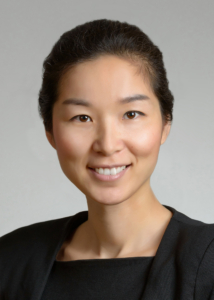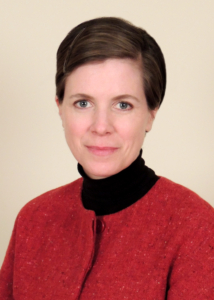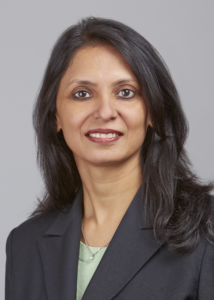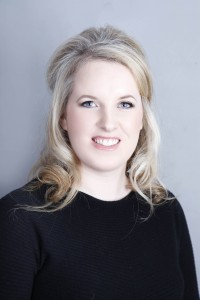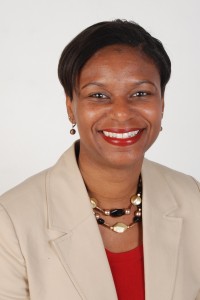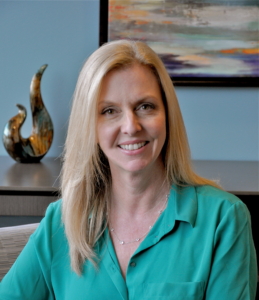 At one time she moved her young family to Singapore for work, traveled frequently from the United States to Latin America on business and left a high profile job to raise two daughters. A few years later, Stephanie Holt returned to the workforce and successfully reinvented herself at an investor focused start-up firm. As a woman with a degree in business economics and a background in technology, Holt proves there is no such thing as a straight line when it comes to your career path.
At one time she moved her young family to Singapore for work, traveled frequently from the United States to Latin America on business and left a high profile job to raise two daughters. A few years later, Stephanie Holt returned to the workforce and successfully reinvented herself at an investor focused start-up firm. As a woman with a degree in business economics and a background in technology, Holt proves there is no such thing as a straight line when it comes to your career path.
Creating an International Career
Born and raised in California, Holt met her husband as an undergrad at University of California – Riverside. After a short sabbatical to have her first daughter, she graduated and started working at a small medical technology firm. Soon after, she had her second daughter and then embarked on graduate school at the University of Redlands.
When her husband’s job moved them to the Bay area, in January 2000 Holt started working in finance at Advanced Micro Devices (AMD), a semiconductor company that develops computer processors and related technologies for business and consumer markets. She started in Sub-Micron Development working with research and development Engineers buying equipment to design microchips that wouldn’t be produced for 10 years.
“About a year and a half later, the CFO asked me if I wanted to manage the manufacturing plant in Singapore,” she said. “My husband and I had a brief discussion about it and five weeks later we were on our way to Asia.”
That was July 2001 and Holt admits that if she knew the challenges that were ahead for a 5’10’’ blonde woman in Singapore, she may not have gone.
“Some of the things I saw were shocking. For example, when you apply for job in Singapore, you have to include a picture with the application,” she said. “Questions about your personal life and when you want to have kids are part of the interview process.”
At one point, Holt was pulled aside and advised to try and acclimate to the culture around her instead of trying to have them acclimate to what she was used to.
“I might have been cavalier when I first got there but I learned some great life lessons, such as not everything is black and white,” she said. “If I am passionate in my beliefs about something, someone else is just as passionate but on the other side of the table.”
Even though AMD wanted to extend her stay in Singapore another four years, Holt and her family moved back to the States after two years in Asia. They moved her into a financial sales role where she spent a lot of time traveling to Latin America.
Three years later, when her oldest daughter was in high school, Holt decided she wanted to take some time off to be a stay at home mom.
“It was then that I realized just how important my job title had become to me and it took me six months to reconcile that,” she said. “I didn’t know any women who had left a high profile corporate job to be a mom, and then come back after some time to another senior level position. I learned that if you are confident, you can do it.”
Joining an Investment Advisory Start-Up
After her second daughter went to college, Holt wanted to go back to work as a consultant. She called Jim Dowd, managing director of North Capital and a man she has known since high school.
“One of the reasons I was interested in the North Capital companies was because of the JOBS Act passing in 2012. This was designed to give individual investors better access to private investment deals. I remembered when I was at AMD, we had a sales rep who told us about an amazing company that was pre-IPO but past the start-up phase,” said Holt. “That company was Google and everyone was trying to figure out a way get money in but only the big investors had access to it. The JOBS Act is supposed to make it easier for people to invest in these private placement deals.”
Holt was excited about the new product availabilities and started thinking about all of the people in her life that could take advantage of this new landscape.
“We get a lot of referrals from our current clients’ children who don’t have a lot of money themselves but want advice on how to invest. Each client is deserving of your time and attention. That’s what I learned working with Jim Dowd and appreciate about him,” said Holt. “North Capital is a business but it’s also a friendship that has been 37 years in the making.”
In three years, Holt and Dowd have been able to build the company from 3 to 15 employees with over 20 registered representatives. Holt believes the time is right for the company to give back and launched an initiative aimed at educating women, in various stages of their life, to start the conversation about money.
“I really feel that money is still a taboo topic for women,” she said. “Since money is such an important aspect of your career and personal life, we need to be comfortable with talking about the topic.”
Lessons Learned
Holt has also recognized throughout her career that it is okay to say no.
“When I would make requests to colleagues and they would say no, I would figure out how to make it work and yet I was always reluctant to say no myself,” she said. “I would never think less of that person, I would just think that they had other work to do. I finally realized that no one thought less of me as an employee, or a person, if I said no.”
She said that this also makes you a better worker.
“When you say no, you are also able to avoid over extending yourself,” she said.
Holt also advises to be open and honest about what you don’t know at your job.
“I am the type of person that is always upfront about what I don’t know because I have always been surrounded by great people who could fill in the gaps,” she said. “In Singapore, I knew my role but I didn’t know the way people did business in Asia. I learned that if you ask for help, people are willing to work with you.”
A Career of Breaking Misconceptions
Just like Holt transitioned from Asia to Latin America and from accounting to technology; Holt has also been able to transition from a high profile, career focused women to a stay at home mom and back again. By learning to talk about money, by avoiding over-extending herself and by having the confidence to put her family first when she felt it was needed, Holt has become a role model for women with young families.
She believes it is a misconception to think women can’t take a break and then come back. She points to a change she has seen in the past 15 years.
“When I started, there weren’t a lot of women in senior management positions in technology. We were taught to wear pantsuits and act like a man because that was what it took to succeed. Now that women have become more visible as role models, females in finance and technology are better able to envision a path for themselves,” she said. “Just remember, you don’t need to take the point A to point B path to get to the right place.”
By Jessica Titlebaum
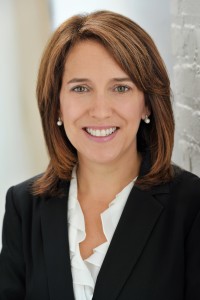 “People sometimes ask me, ‘If you could do it all over again, given your practice focus in the financial services area, would you be a banker as opposed to a lawyer?’ I would be a lawyer. This is a particularly exciting time to be a lawyer, with all the regulatory changes, and my clients rely on me to provide counsel and advice,” said Donna M. Parisi, Partner and Head of the Asset Management Group at global law firm Shearman & Sterling LLP.
“People sometimes ask me, ‘If you could do it all over again, given your practice focus in the financial services area, would you be a banker as opposed to a lawyer?’ I would be a lawyer. This is a particularly exciting time to be a lawyer, with all the regulatory changes, and my clients rely on me to provide counsel and advice,” said Donna M. Parisi, Partner and Head of the Asset Management Group at global law firm Shearman & Sterling LLP.
